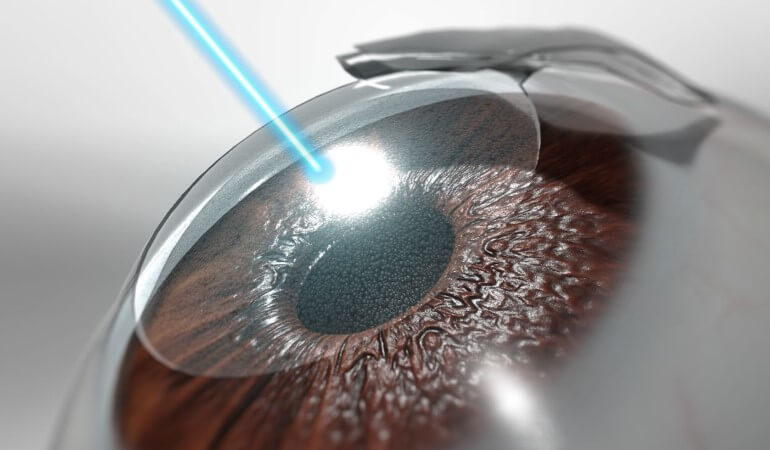Services
Providing complete and trusted eye care for all ages with advanced technology and expert care
Refractive surgery improves vision by reshaping the cornea or replacing the eye’s lens. It helps correct nearsightedness, farsightedness, astigmatism, and presbyopia. The goal is to reduce or remove the need for glasses or contact lenses, making life easier. With better technology, the surgery is safer and more accurate, giving patients clearer vision. If you’re tired of blurry sight or relying on glasses, refractive surgery could be the answer.
Refractive surgery isn't for everyone, and there are specific requirements to be considered a good candidate. To qualify, you should:

Refractive eye surgery helps you see clearly without needing glasses or contact lenses. It corrects common vision problems like nearsightedness, farsightedness, astigmatism, and age-related blurry vision by reshaping the eye or replacing its lens. Popular methods include LASIK, PRK, SMILE, and lens surgeries like ICL and RLE, offering clear and lasting vision.
You may be eligible if you’re 18 or older and your eyesight has stayed the same for at least a year. Your eyes should be healthy, with a strong cornea, and you should not have problems like dry eyes, glaucoma, or other eye conditions. Pregnant or breastfeeding women are usually advised to wait. An eye doctor will check your eyes to see if the surgery is safe for you.
LASIK : is the most popular method. It reshapes the cornea using a laser after creating a small flap.
PRK : doesn’t need a flap—it removes the outer corneal layer before using a laser, ideal for people with thinner corneas.
SMILE : is a gentle, minimally invasive procedure that removes a small piece of tissue through a tiny cut, offering quick healing and fewer side effects.
If laser surgery isn’t suitable, ICL and RLE are lens-based options that place an artificial lens inside the eye for clearer vision.
No, refractive surgery is usually painless. Numbing eye drops are used before the procedure, so you might feel just a bit of pressure or a mild sensation, but not pain. After surgery, some people may have dryness, irritation, or slight discomfort—especially with PRK, which takes a bit longer to heal. These effects are temporary and can be managed with eye drops and proper care.
Refractive surgery is quick and efficient, usually taking just 10 to 20 minutes per eye. The actual laser work in procedures like LASIK or SMILE takes only a few seconds. Including preparation and post-checks, you might spend a couple of hours at the clinic. Even though it's fast, advanced laser technology makes the results precise and comfortable.